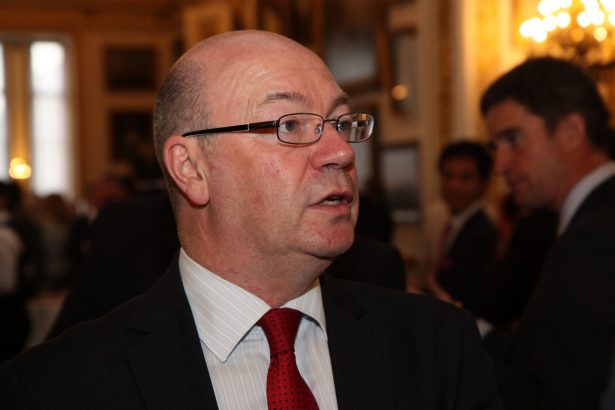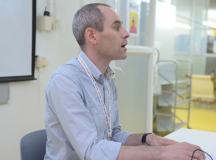On 2 July 2019 the Royal United Services Institute (RUSI) organised a one-day conference to explore UK strategy in the Middle East after Brexit in collaboration with the Britain Israel Communications and Research Centre (BICOM). Bringing together a select audience of academics, policy experts, think tankers, journalists and government officials, the conference divided the topic into three themes: current policy, the UK’s role in the region and future challenges in the Middle East.
Speakers included Baroness Catherine Ashton, former High Representative of the Union for Foreign Affairs and Security Policy; Rt. Hon. Alistair Burt MP, former Middle East Minister; Sir Mark Lyall Grant, former UK National Security Advisor; Professor Michael Clarke, former RUSI Director-General; Dr Emman al-Badawy, Institute for Global Change; Dr Toby Greene, Queen Mary University; Dr David Roberts, King’s College London; Jane Kinninmont, Head of Programming, The Elders; and Dona Haj, DCMS UK-Israel Tech Hub.
I have been asked to look at UK policy in the Middle East as it is now and where it might be going.
UK Policy Today
Firstly, supporting stability in the Middle East is in our interest and we do this in a variety of ways. The foundations of UK relations and policy in the region are pretty firm and long-lasting. On a personal basis, I can’t overstate the degree of positive feeling in the area toward the UK and its representatives. It’s not a glib phrase when people say to me about the UK, ‘You know us better than anyone else’. That makes a marked impression on a minister, who is by nature a ‘here today, gone tomorrow’ individual, but who represents a continuous presence. What we read in textbooks and what we pick up in briefings are only one part of the deep and personal history the UK has with many of the people that we deal with. That sense of relationship is fundamental and is not easily shaken by events.
Second, the continuing expansion of trade: the Gulf is the UK’s fourth largest non-EU export market, and we are the fourth largest foreign direct investor in places like Egypt — significant investment comes from sovereign wealth funds. So the economic and trade relationship is fundamental.
Third, the UK exercises soft power and diplomatic influence in the region. A permanent member of the UN Security Council, which remains a fulcrum for debate, we are the pen holder on Yemen, for example. (Eds. i.e. the member of the Security Council who initiates and chairs the informal drafting process of a decision of the Council.) And there is the BBC, the British Council and the English language.
Fourth, there are defence and security arrangements, including the new facility which opened in Bahrain last year, as well as joint military training exercises like SAIF SAREEA 3 in Oman. We are also a defender of international rules. The work done on chemical weapons after their use in Syria, when the UK stimulated international action to say ‘this is a bridge too far’, is an example of that.
Fifth, there are our international aid and development programmes. The Department for International Development (DfID) that helps pick up the pieces after conflict. For the refugees being sheltered in Lebanon and Jordan, UK aid is ensuring that people are fed and educated. In Yemen, DfID provides significant support to those affected by the conflict whilst working to ensure a resolution to the conflict through other means. And then there is the reconstruction work being done in Iraq.
Future challenges
What will challenge UK strategy in the region in the future?
Firstly, the ‘Arab Spring’ has not gone away. Its drivers are still very much present in the region. Look, for example, at ‘doubling time’ – i.e. how long it takes a population to double. Egypt with its population of 97 million people has a doubling time of 31 years and Yemen has a doubling time of 24 years. That kind of population growth drives huge expectations surrounding jobs and education, expectations not currently being fulfilled in many parts of the region, not least as governance issues remain. British policy will be tested as and when states begin to deal with the echoes of the Arab Spring.
What does stability in the region look like for the UK? Is stability simply supporting existing governments and regimes? Does experience — look at Syria and Libya, for example — tell us that almost any change leads to serious disruption? Or is support for regimes under pressure a fundamental driver of further instability in the future? I have been reading former US deputy Secretary of State William Burn’s excellent memoirs entitled ‘The Backchannel’ and was very relieved to see, from someone I regard as a very fine man and diplomat, that he was just as uncertain as we were about how the Arab Spring was being handled. I think that reveals the complexity of the challenge.
Secondly, there are wider regional uncertainties. This includes the apparent pulling back of the US from the region through the combination of the policies of the Obama and Trump administrations, which have created many uncertainties and opened many doors.
One place where the consequences of this retrenchment has been severely felt is Syria. Should the West have intervened? The uncertainty by the US and UK, first setting out red lines and then not following up, notably after the chemical weapons attack in August 2013, opened the door in the region to other states to intervene (Russia and Iran included). The consequences of that are yet to be fully understood.
The US is determined to push through the Middle East Security Alliance but the reluctance of some to accept this is stalling it. Is this a defensive alliance for the Gulf and Arab states or an offensive alliance against Iran which they want no part of? That uncertainty lingers. Where will the UK fall in relation to this?
The dispute in the Gulf Cooperation Council (GCC) has created new uncertainty too. When I was in post in 2013, the GCC was one example of something in the region that had held together in difficult times and was a structure with which we could all work. Now, of course, it is under serious pressure because the dispute with Qatar is not yet resolved. The UK is a friend to all Gulf states and we are determined to remain so, but we know that if the situation remains unresolved, the UK will be asked: ‘Which side are you on’? The GCC needs to come together and we need to work to support efforts to do that.
And then there is China, which is beginning to take an interest in the region, particularly since 2013 when it designated the Middle East as a ‘neighbour state’, an important announcement of a renewed interest which will not only be economic, but likely also military. The US retrenchment and the hesitation about its role in the region, and by implication our role, has led to more uncertainty.
Third, handling conflict now poses new challenges. Nobody wins wars in the region anymore. I have given up on the idea of winning any war in the Middle East. Very few issues are resolved by war. Maybe something is buried, but then it appears again in the future. Things have moved on very rapidly. How conflicts have been handled has put new pressures on us. Who has gained from the wars in Iraq, Syria and Yemen? It is Iran, without doing much except taking advantage of the situation.
A further example of things coming back to bite us would be the foreign fighters. What do we do with them? And what do we do with the children of foreign fighters? We do not have answers to these questions, nor to the related migration issues.
One opportunity for the UK to play a role is in cyber and intelligence. We’re good at this, we’re good partners and we can help support and defend those in the region that are under cyber attack.
Fourth, I must also mention the Middle East peace process. I have been interested in the Middle East since I was at school as a child during the Six-Day War with many Jewish friends in Manchester. As I got older, my understanding of the Palestinian issue became much more nuanced. Since being involved in foreign affairs for the last few years I have realised that you have to see every issue from all points of view. I don’t believe the conflict can be kept on the shelf somewhere, unresolved. If it’s not settled, justly for the Palestinians and with security for Israel, something bad is going to happen. The failure to handle this longstanding dispute creates another layer of uncertainty. As the US changes its role in the peace process, who steps in? Here I can see a role for us.
Finally, let me turn to one final thing that will affect the UK’s role in the Middle East and that is Brexit. I am heartbroken about Brexit. I accept the democratic verdict, but I am deeply worried about the implications of Brexit, and about leaving our friends and partners at a critical time for them.
I have never really come across a more lose-lose situation in diplomatic terms. The EU will lose the diplomatic reach of the UK, which has been extensive, and the UK will lose the security and defence cooperation with the EU. We will have to invent new ways to deal with the relationships that were secured through council meetings and routine bilaterals. It is not that it’s impossible to do, but we’ve just made it much more difficult.
The UK will lose the clout of 28 other EU member states. I did feel when I was going into meetings that I was representing all EU states as well as the UK. The first number on my speed dial was Jean Baptiste Lemoyne in France. We are going to lose that sense of commonality when dealing with new issues for the Middle East, such as climate change and migration, although I think we will build something new. The relationships with France and Germany are going to be vital.
There are two further things that I think we should consider for the future.
First, we need to ensure that we invest more in the Foreign Office. We need more personnel and more languages. We are not bad at Arabic but we could be better. I do not speak any languages at all, so I am not one to talk!
Second, because we are going to be on our own, it is right that we are talking about boosting our defence commitment and increasing the amount we spend on it. As regards the deployment of defence forces, there are two issues. First, I am very much against Parliament having an executive say. I think it is for government to deploy forces and to answer to Parliament afterwards to explain what it is doing. Second, I am not sure that the UK has come to a serious conclusion about when it is going to use its forces and when it is not. I think we would defend Gibraltar and the Falklands but I am not sure what else Parliament would defend. We decided against deploying force in Syria. We are going to face more and more of those situations in the future and we need to have a policy decision either in Parliament or in government regarding how and when we use our forces.
Last word. The 2017 House of Lords report on the Middle East entitled The New Realism concluded that ‘The United Kingdom does not have the luxury that the United States has of reducing its exposure to or engagement with this neighbouring region’. That is absolutely correct. But, we are going to have to think through new approaches in the years to come.
The panel discussions can be watched below.





































